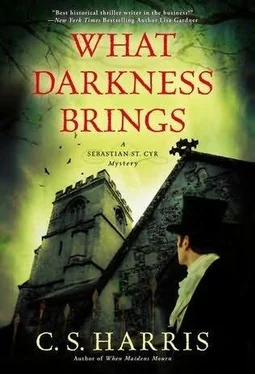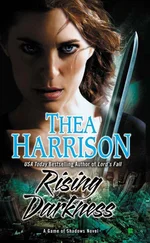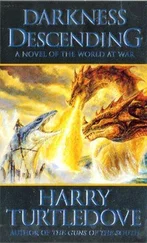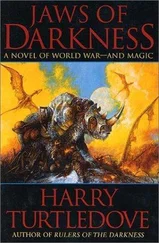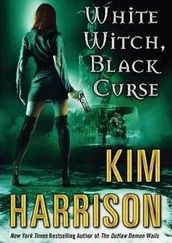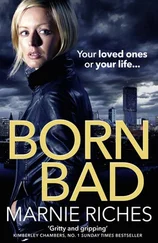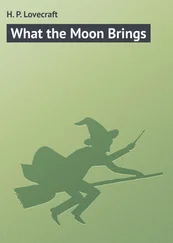C. Harris - What Darkness Brings
Здесь есть возможность читать онлайн «C. Harris - What Darkness Brings» весь текст электронной книги совершенно бесплатно (целиком полную версию без сокращений). В некоторых случаях можно слушать аудио, скачать через торрент в формате fb2 и присутствует краткое содержание. Жанр: Исторический детектив, на английском языке. Описание произведения, (предисловие) а так же отзывы посетителей доступны на портале библиотеки ЛибКат.
- Название:What Darkness Brings
- Автор:
- Жанр:
- Год:неизвестен
- ISBN:нет данных
- Рейтинг книги:3 / 5. Голосов: 1
-
Избранное:Добавить в избранное
- Отзывы:
-
Ваша оценка:
- 60
- 1
- 2
- 3
- 4
- 5
What Darkness Brings: краткое содержание, описание и аннотация
Предлагаем к чтению аннотацию, описание, краткое содержание или предисловие (зависит от того, что написал сам автор книги «What Darkness Brings»). Если вы не нашли необходимую информацию о книге — напишите в комментариях, мы постараемся отыскать её.
What Darkness Brings — читать онлайн бесплатно полную книгу (весь текст) целиком
Ниже представлен текст книги, разбитый по страницам. Система сохранения места последней прочитанной страницы, позволяет с удобством читать онлайн бесплатно книгу «What Darkness Brings», без необходимости каждый раз заново искать на чём Вы остановились. Поставьте закладку, и сможете в любой момент перейти на страницу, на которой закончили чтение.
Интервал:
Закладка:
There had been so little of either in Arabella Noland’s short life.
Now, as she breathed in the heady scents from the banks of Michaelmas daisies, ferns, and chrysanthemums, Kat found herself wondering if it was her mother’s spirit that had guided her here, to the peace of this place. Or was this love of growing things a trait passed down from mother to daughter, like dark hair and a talent for acting? A tendency that had always been there, nestled hidden within her, only waiting to be discovered.
She smiled at the thought. Then the smile faded as she became aware of a sudden charge of tension in the atmosphere, the rush of heavy feet. A trader’s high-pitched voice whined, “’Ey! Wot the ’ell ye doin’?”
Kat’s eyes flew open.
Rough hands seized her from behind. She lunged against the unseen man’s fierce grip, tried to scream. A calloused palm slapped down across her mouth, grinding her lips against her teeth and flattening her nose so that she had to fight to draw air. She smelled dirt and onions and fetid breath as he pressed his beard-roughened cheek against hers and whispered, “Come wit’ me quiet-like, an’ I’ll see ye don’t get hurt.”
Chapter 39
Kat heaved against the man’s hold and felt his arms tighten around her in a fierce hug. He dragged her backward, toward the shadowy, narrow lane that ran along the old, soot-stained nave of the church. She tried to bite the thick, dirty fingers smothering her, but the pressure was so brutal she could get no purchase.
“I say, there,” bleated one of the florists, stepping from behind his stall. “You can’t do that!”
A second man-a wiry, black-haired brute with a pock-scarred face and small, sharp nose-turned to thrust a blunderbuss pistol into the trader’s face. “Mind your own business or lose your head.” His English diction was careful and precise, but Kat caught the faint, unmistakable traces of French inflection and knew a new leap of terror.
The florist backed off, hands splayed out at his sides, face slack.
Her heart was pounding, her mouth achingly dry, the shouts of the scattered costermongers and stall keepers echoing oddly in her head, as if she were at the base of a well. The market square spun around her in a blur of startled, frightened faces, wet paving, spilled chrysanthemums. A flock of pigeons whirled up from the church portico, pale outstretched wings beating the cool damp air. She tried to twist her body sideways, but her captor’s fingers dug into her cruelly, his breath hot against her ear. “Ye want to live, don’t give me trouble. Ye hear, girl? Because wot I do wit’ ye afterward is up t’ me. Ye got that?”
She made herself go utterly limp, as if fainting from fear, her hands dangling slack at her sides. She heard him give a grunt of satisfaction. “Have yer friend bring the bloody cart up, quick,” he told his pockmarked companion. “Let’s get out o’ ’ere.”
They were passing the last stall in the row, a rough shed given over to the sale of earthen crockery, the stall’s seller cowering wide-eyed against the rickety frame, as if he could somehow make himself disappear into the weathered post behind him. Kat’s captor was half dragging, half carrying her now, a drooping deadweight that sagged in his arms, so that his effort was more focused on keeping her upright than on restraining her.
Flinging out one hand, she grasped the lip of a stout pitcher from the edge of the stall’s counter and swung it up and back to smash it against the side of her captor’s head. He let out a rumbling roar, his grip on her slackening with surprise and pain.
She twisted sideways, ignoring the wrenching pain that shot from her wrist as he tried, too late, to tighten his hold on her. “You bloody son of a bitch!” she screamed, grabbing a platter off the stall and breaking it against his face. “I ought to cut out your bloody liver and feed it to the crows!”
He howled, blood spurting from his cut face, his arms flinging up to protect his head as she snatched up a bowl and hurled it at him.
“Oy, wot ye doin’ to me crockery?” bleated the stall owner.
“Your bloody crockery?” shouted Kat, whirling to heave a plate at him. “You worthless, stinking coward! You would have just stood there and watched him kill me!”
“You fool,” screamed the pockmarked man to his companion as a shouting, angry crowd of stall keepers and costermongers, bouquet girls and nurserymen bore down on them. “Don’t just stand there. Grab her!”
“’Tain’t no way to treat a lady!” hollered a big, black-haired porter.
“You mind your own business,” growled the pockmarked man, flourishing his pistol.
A rotten tomato flew through the air to break in a red splat against his face.
The air filled with the day’s unsold produce, spoiling turnips and overripe melons, moldy pears and putrid apples. For one moment, the two men held their ground. Then the plucked, gutted carcass of a chicken whacked against the side of the bigger ruffian’s head. He turned and ran, feet slipping and sliding on a sea of rotten vegetables, splattered fruit, and smashed crockery. His companion hesitated a moment, then followed, swerving around the church steps to duck down the side street.
“Lay a hand on me again, and I’ll kill you! You hear?” yelled Kat, hurling a last earthenware bowl after them as they pelted down the lane to their waiting cart. She was no longer Kat Boleyn, the toast of London’s stage; she was Kat Noland, the scrappy, angry young orphan who’d struggled to survive in the fetid back alleys of a vast, unfriendly city. “I’ll cut off your pathetic yards and feed them to the stray dogs in Moorefield. I’ll decorate London Bridge with your entrails. I’ll-”
But the men were already piling into their waiting cart, its driver whipping up his horses into a mad gallop that took them careening around the corner and out of sight.
Kat let her hand fall back to her side, her fingers clenched tight around the lip of the rough mug she still held, her heart thundering in her chest.
“Do you know the story of the mice and the cat?” asked Emma Wilkinson, looking up at Sebastian with her father’s big gray eyes.
They were seated before the feeble fire in Annie Wilkinson’s tiny Kensington parlor. He had come here, as promised, to tell Emma a story before she went to bed. He’d expected the experience to be awkward, for he was a man with little exposure to children. But as Emma settled more comfortably against him and he felt her baby-soft curls brush his chin, he was surprised to find his thoughts drifting to the child that would be born to Hero in just a few short months.
“It’s my favorite,” said Emma.
“I might not tell it exactly the same as your papa.”
“That’s all right,” said Emma. “Papa always tells it a little differently each time.”
Sebastian glanced over to where Annie sat darning a sheet by the fading light of the rainy day. And he knew by the quick rise and fall of her chest that the child’s use of the present tense was not lost on her either.
“Very well,” he said. “Once upon a time, a colony of mice lived a happy, peaceful existence within the walls of a small village shop. The mice were well fed and content. But the man who owned the shop wasn’t happy with all those mice stealing his grain and nibbling on his cheese. So he bought himself a cat, who patrolled his shop and quickly terrorized the poor mice to the point they were too afraid even to come out of their little holes in the wainscoting and eat.”
“What color was the cat?” Emma asked.
“A big black cat with a bushy tail.”
“Papa always says, ‘a tabby.’”
“Sorry.”
Emma giggled.
“Anyway,” said Sebastian, “the mice quickly realized that if they didn’t do something about the cat, they would either starve to death or get eaten themselves. So they all got together to try to come up with a solution. There was much arguing and shouting, but no one could think of anything that would work. Finally, a clever young mouse stood up and said, ‘The problem is that the cat is so quiet we can’t hear him when he’s sneaking up on us. All we need to do is tie a bell around his neck, and that way we’ll always know when he’s coming.’
Читать дальшеИнтервал:
Закладка:
Похожие книги на «What Darkness Brings»
Представляем Вашему вниманию похожие книги на «What Darkness Brings» списком для выбора. Мы отобрали схожую по названию и смыслу литературу в надежде предоставить читателям больше вариантов отыскать новые, интересные, ещё непрочитанные произведения.
Обсуждение, отзывы о книге «What Darkness Brings» и просто собственные мнения читателей. Оставьте ваши комментарии, напишите, что Вы думаете о произведении, его смысле или главных героях. Укажите что конкретно понравилось, а что нет, и почему Вы так считаете.
